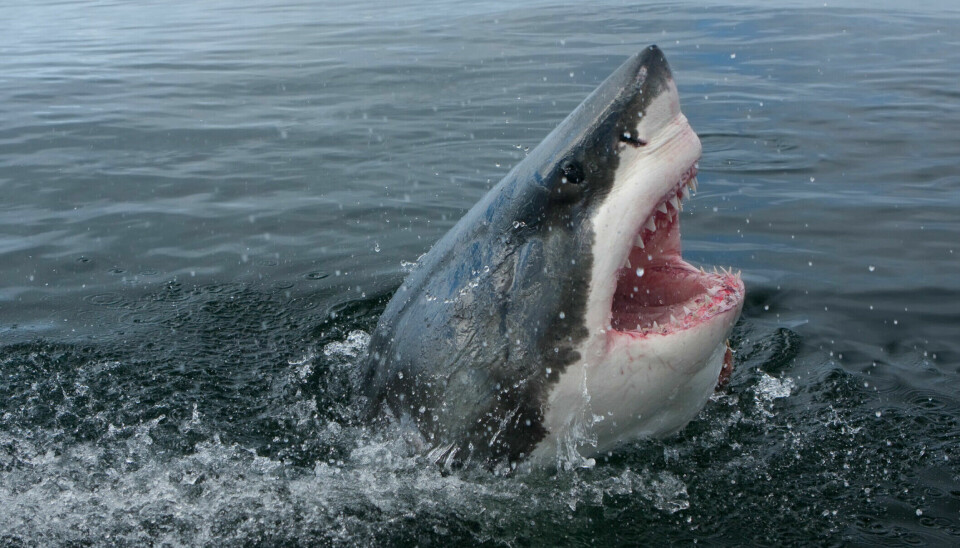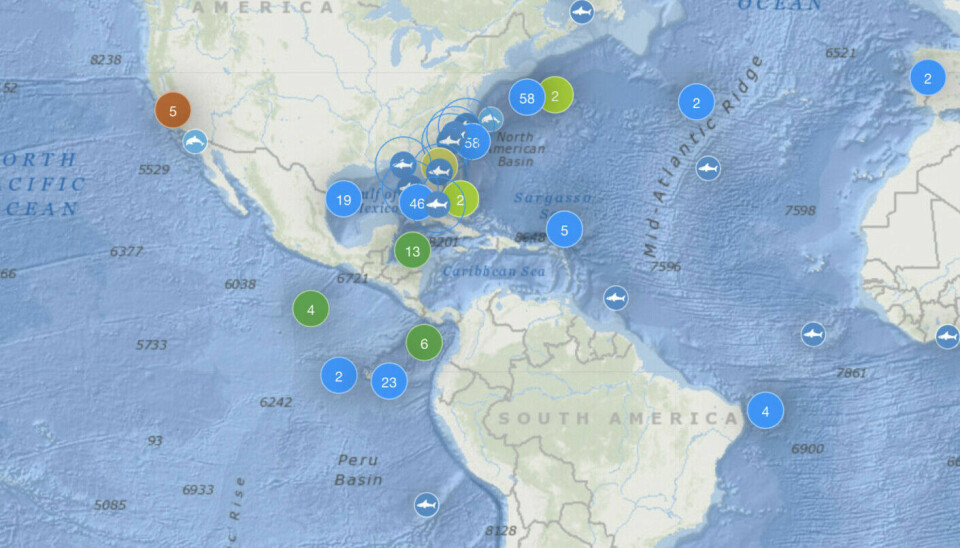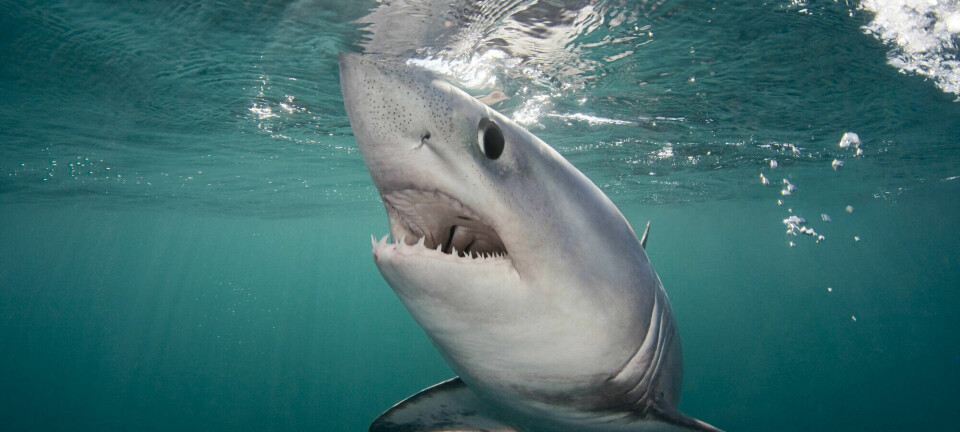
Do great white sharks exist off the coast of Norway?
ASK A RESEARCHER: Researchers are not entirely in agreement.
When you are about to dive into the sea, you might wonder: What in the world is swimming around me now?
One possibility is the world's largest predatory fish – the great white shark.
“We can’t dismiss the fact that it might be here in Norway,” a shark researcher says.
You can keep track yourself
Researchers from the organisation OCEARCH are working to attach small radio trackers to great white sharks.
This allows us to monitor their locations. The researchers have now tagged 92 individuals.
Here you can follow sharks like Penny and Bob.
“How many great white sharks are there?”
“We don't know for sure, so researchers have tried to calculate it,” shark researcher Claudia Junge at the Institute of Marine Research tells sciencenorway.no.
One thing is certain: There are quite a few great white sharks that aren’t tagged.

Norway should be prepared
“It’s challenging to confirm the presence of great white sharks in our waters, as we haven’t observed any yet,” Junge says.
She believes that Norway should be prepared if and when they appear.
“Imagine how exciting it would be to track them. We should employ drones and conduct water sampling to check for great white shark DNA in the ocean. And then, we should tag them,” she says.

Researchers disagree
Some researchers believe that the great white shark is already in Europe. Others disagree.
“Some are certain of it. They point to climate changes and warmer waters. That could make the environment more suitable for great white sharks,” Junge says.
Others disagree. No evidence, no great white shark.
“But just because we don’t see them doesn’t mean they’re not here,” she says.
It’s possible that the sharks swim very deep in our oceans.
“At such depths, they become invisible, and their radio trackers stop functioning. These devices need to reach the surface to receive and send signals,” she clarifies.
This might have happened with a great white shark that was approaching England and then suddenly vanished from the researchers’ screens.
“It’s also possible that the tracker’s battery ran out,” Junge says. “If they swim deep enough, they would also avoid getting caught in fishing nets.”
Reported 100 times
People have reported great white shark sightings nearly 100 times around Great Britain between 1965 and 2016.
“Shark expert Richard Peirce reviewed all the reports, photos, and videos to see if they could actually be true,” Junge says.
He believed that seven of them could be great white sharks.
“But it could have been the same great white shark every time,” Junge says.
Undeserved reputation
“It’s possible that there are great white sharks in waters not far from Norway, but they’re not as dangerous as you might think,” Junge says.
They will most likely just swim past you.
“Great white sharks want to conserve energy, and humans thrash about with their arms and legs,” she says.
They prefer prey that offers little resistance.
“Like a surprised and preferably small seal,” she says.
In 2023, researchers studied the interaction between humans and great white sharks at the beaches in Southern California.
They saw the same thing: Great white sharks stayed away from both swimmers and surfers.
———
Translated by Alette Bjordal Gjellesvik
Read the Norwegian version of this article on ung.forskning.no







































